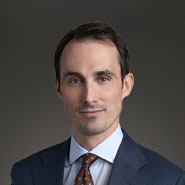Publications

Second Circuit Broadens Scope of Expert Testimony Admissible in White-Collar Fraud Trials
In United States v. Litvak, 14-2902, the U.S. Court of Appeals for the Second Circuit vacated the conviction of a securities trader after concluding that the district court erroneously excluded his proffered expert witnesses. Two aspects of the Court’s 84-page decision are of particular significance for defendants in fraud cases. First, the Court rejected an overly narrow view of the role of expert witnesses in criminal trials, a view that often limits defendants’ ability to present a fulsome defense on the issue of materiality. The Court also broadened the circumstances in which evidence of similar acts by other parties can be admitted to support a defendant’s argument that he acted in good faith, without the intent to defraud.
The defendant, Jesse Litvak, worked as a securities broker and trader at Jefferies & Company, trading residential mortgage-backed securities (“RMBS”). The government charged him with eleven counts of securities fraud, as well as other counts, based on his alleged misstatements to counterparties in the trades. The alleged misstatements related to the circumstances under which Jefferies had acquired the RMBS (for example, that Jefferies had paid more for the RMBS than it actually did). At trial, the counterparties testified that they relied on Litvak’s misstatements, and that if Litvak had told the truth, they would have demanded lower prices.
Litvak largely conceded that he made the alleged misstatements. But his primary defense was that no reasonable trader in the highly sophisticated RMBS market would have relied on these sorts of statements from a counterparty in deciding whether to buy at the quoted price. In the language of the securities laws, Litvak argued his misstatements were not “material.” Instead, he contended, RMBS traders used sophisticated mathematical models to value the securities based on their underlying characteristics, and there was no allegation that Litvak made any misstatements about these characteristics. The district court refused to let the jury hear testimony from two expert witnesses that would have supported Litvak’s argument about the types of information RMBS traders relied on. Litvak was convicted and sentenced to two years’ imprisonment.
On appeal, Litvak challenged his conviction on several grounds. The most important was the district court’s exclusion of expert testimony from Ram Willner, a business school professor and former RMBS trader, who would have testified about the RMBS market generally and the information RMBS traders used in valuing securities. Willner’s testimony would have supported Litvak’s argument that his alleged misstatements were not material, because they were not the sort of information RMBS traders relied on. The district court doubted that Willner, or anyone for that matter, could be qualified to offer such testimony about the traders’ behavior, and thought Willner’s testimony came close to telling the jury how to decide the ultimate issue of materiality.
The Second Circuit found the exclusion of Willner’s expert testimony to be an abuse of discretion. In its view, the testimony was plainly relevant because it had bearing on whether Litvak’s misstatements were material. Any concern that Willner might opine on the ultimate issue could be limited with appropriate jury instructions. By excluding Willner, “Litvak would be left only with the ‘victims’ of his conduct as sources of potential testimony on this issue, an odd limitation where the jury is to evaluate materiality in an objective manner.” The Second Circuit found that the error was not harmless, and therefore vacated Litvak’s conviction and remanded for retrial. This aspect of the Second Circuit’s decision is a useful antidote to unduly restrictive views about the admissibility of expert testimony in criminal cases.
Having decided to vacate Litvak’s conviction, the Court went on to address a number of evidentiary issues likely to arise in any retrial, including the admissibility of evidence regarding Jefferies managers’ knowledge and approval of Litvak’s tactics. The district court had allowed Litvak to introduce evidence that the managers knew of or authorized Litvak’s specific behavior, but precluded him from introducing evidence that the managers had sanctioned the same behavior by other traders except in cases where Litvak knew of this at the time. The district court likened such evidence to the defense that “everybody did it and therefore it isn’t illegal.” The Second Circuit disagreed. Instead, it thought that such evidence was relevant, because if Jefferies’ management had sanctioned similar behavior from other traders, it was all the more likely that they sanctioned Litvak’s conduct, which supported his contention that he was acting in good faith. This careful analysis provides defendants in similar cases with the ability to present evidence in support of arguments that they acted in good faith by engaging in behavior that was standard industry practice.
